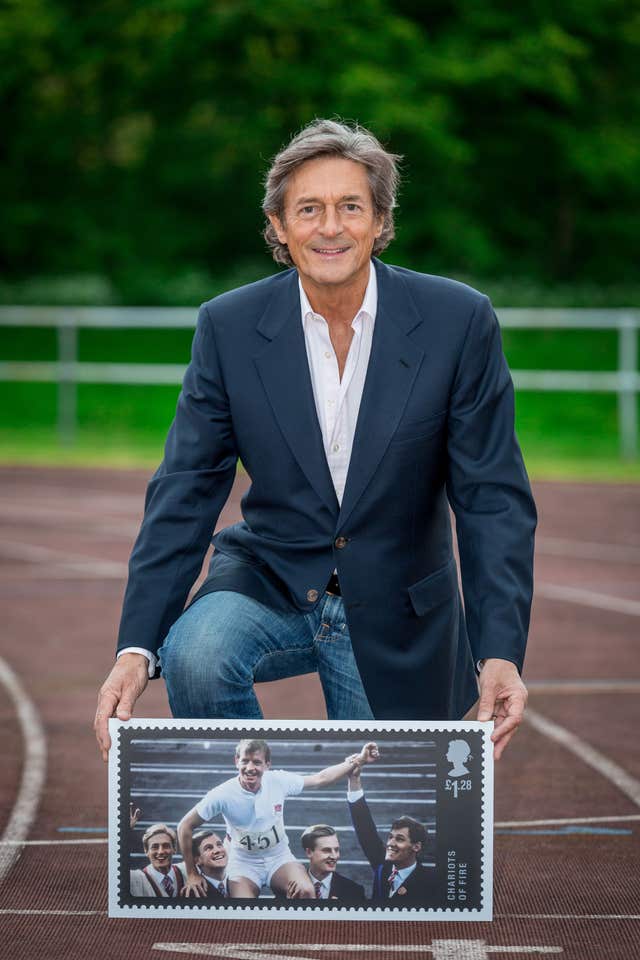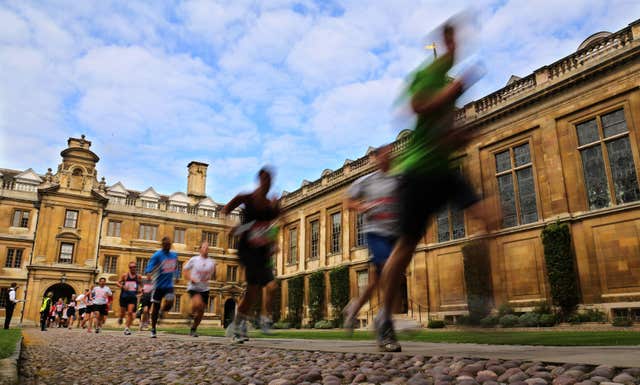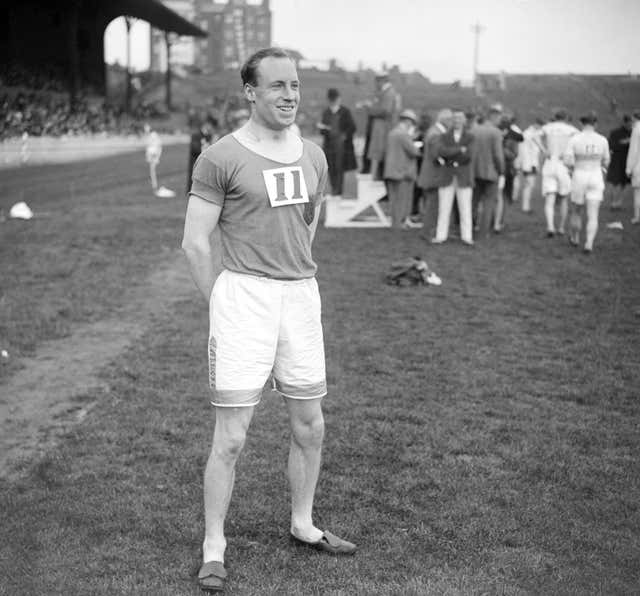
From robo-heavyweights to angry ice-skaters, sports movies occupy a peculiar and often frankly unwatchable place in the annals of Hollywood history.
Amid global lockdown, the PA news agency runs a daily rule over some of the films that might provide that much-needed sporting fix – and those that absolutely shouldn’t.
CHARIOTS OF FIRE (1981)
Summary
Winner of four Oscars – including Best Picture for producer David Puttnam and Best Music, Original Score for Vangelis’ instantly-recognisable soundtrack – the film was based on a true story of British athletes preparing for the 1924 Olympics in Paris. The journeys of devote Christian Eric Liddell, the ‘Flying Scotsman’, and Jewish sprinter Harold Abrahams are charted through university – including the Great Court Run at Cambridge – and onto the Games. Liddell faces the wrath of the British establishment as his faith precludes him from running in a heat of the 100 metres which falls on a Sunday. Abrahams, meanwhile, battles both anti-semitism and the controversy of hiring a professional coach to go on to claim gold, while Liddell would later win the 400m title.
Cast

Ben Cross played Abrahams, with Ian Holm nominated for an Oscar as Best Supporting Actor in his role as coach Sam Mussabini. Liddell was portrayed by Ian Charleson, who also featured as Anglican priest Charlie Andrews opposite Ben Kingsley in ‘Gandhi’. Charleson was diagnosed with HIV in 1986, and died four years later aged just 40. Nicholas Farrell played steeplechaser Aubrey Montague, while there was a cameo for Sir John Gielgud as the Master of Trinity College. Nigel Havers, meanwhile, revelled in a memorable scene jumping hurdles topped by champagne glasses as Lord Andrew Lindsay – the fictional character based on Lord David Burghley, who later won a gold medal in the 400m hurdles at the 1928 Olympics, became the 6th Marquess of Exeter, chairman of the British Olympic Association and also president of the International Amateur Athletic Federation.
Review

As soon as the chimes of Vangelis’ haunting melody begin, viewers old and new are whisked off to that beach, running bare foot over Broadstairs in Kent (which was actually shot at the West Sands in St Andrews on the Fife coast of Scotland). Now ingrained in British cinema psyche, the 2012 re-release brought the story to a new generation. The screenplay, though, of triumph through adversity and the power of faith from both men, who could not be from more diverse backgrounds, remains timeless – as does the image of ‘Flying Scotsman’ Liddell taking the final bend, his head flung back as he uses the “power from within” to see the race to the end and claim gold.
Top quote

“I believe God made me for a purpose, but he also made me fast. And when I run I feel his pleasure,” Eric Liddell, who later became a christian missionary in China. After being sent to the Weihsien Internment Camp by Japanese army forces, Liddell died in February 1945, five months before liberation.


Why are you making commenting on The Herald only available to subscribers?
It should have been a safe space for informed debate, somewhere for readers to discuss issues around the biggest stories of the day, but all too often the below the line comments on most websites have become bogged down by off-topic discussions and abuse.
heraldscotland.com is tackling this problem by allowing only subscribers to comment.
We are doing this to improve the experience for our loyal readers and we believe it will reduce the ability of trolls and troublemakers, who occasionally find their way onto our site, to abuse our journalists and readers. We also hope it will help the comments section fulfil its promise as a part of Scotland's conversation with itself.
We are lucky at The Herald. We are read by an informed, educated readership who can add their knowledge and insights to our stories.
That is invaluable.
We are making the subscriber-only change to support our valued readers, who tell us they don't want the site cluttered up with irrelevant comments, untruths and abuse.
In the past, the journalist’s job was to collect and distribute information to the audience. Technology means that readers can shape a discussion. We look forward to hearing from you on heraldscotland.com
Comments & Moderation
Readers’ comments: You are personally liable for the content of any comments you upload to this website, so please act responsibly. We do not pre-moderate or monitor readers’ comments appearing on our websites, but we do post-moderate in response to complaints we receive or otherwise when a potential problem comes to our attention. You can make a complaint by using the ‘report this post’ link . We may then apply our discretion under the user terms to amend or delete comments.
Post moderation is undertaken full-time 9am-6pm on weekdays, and on a part-time basis outwith those hours.
Read the rules here